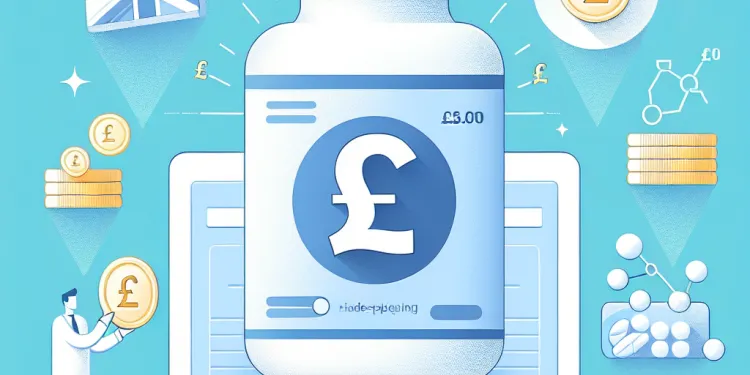
Find Help
More Items From Ergsy search
-
Should individuals with certain medical conditions avoid aspirin?
Relevance: 100%
-
Can aspirin interact with other medications?
Relevance: 85%
-

What is Aspirin?
Relevance: 71%
-

Is Paracetamol the same as Aspirin?
Relevance: 67%
-

Are Aspirin and Ibuprofen the same?
Relevance: 64%
-

Can I take Aspirin and Ibuprofen together?
Relevance: 63%
-

What are the side effects of Aspirin?
Relevance: 63%
-

Can aspirin stop colorectal cancer?
Relevance: 63%
-

What should I do if I'm considering aspirin for cancer prevention?
Relevance: 62%
-

Is it safe to use aspirin to treat chickenpox symptoms?
Relevance: 61%
-

Is aspirin recommended for everyone to prevent colorectal cancer?
Relevance: 60%
-

What is the difference between Aspirin, Paracetamol, and Ibuprofen?
Relevance: 60%
-

Can aspirin help in reducing the risk of strokes?
Relevance: 59%
-

What is the difference between aspirin, paracetamol, and ibuprofen?
Relevance: 59%
-
Is aspirin effective in preventing other types of cancer?
Relevance: 58%
-

Has aspirin been proven to cure colorectal cancer?
Relevance: 58%
-

Which one is better for headaches: Aspirin or Paracetamol?
Relevance: 57%
-
Has the FDA approved aspirin for cancer prevention?
Relevance: 57%
-

What dosage of aspirin is considered effective for cancer prevention?
Relevance: 56%
-

What do health organizations say about aspirin and cancer prevention?
Relevance: 55%
-

How does aspirin work to reduce cancer risk?
Relevance: 55%
-
How long do studies suggest taking aspirin for cancer prevention?
Relevance: 55%
-

Should people with a family history of colorectal cancer take aspirin?
Relevance: 54%
-

Which medication should be avoided for children with fevers?
Relevance: 54%
-
Is aspirin more effective for certain age groups in preventing colorectal cancer?
Relevance: 53%
-

Do over-the-counter medications help in preventing heart attacks and strokes?
Relevance: 51%
-

What is Aspirin?
Relevance: 51%
-

Can homeopathy treat all medical conditions?
Relevance: 50%
-

Are pre-existing medical conditions covered by holiday insurance policies?
Relevance: 50%
-

Can certain medical conditions prevent receiving blood transfusions?
Relevance: 46%
-

Are there specific medications that can cause tinnitus?
Relevance: 45%
-

Should I take any special precautions if I have a medical condition during a heatwave?
Relevance: 44%
-

Are there risks associated with taking aspirin regularly?
Relevance: 44%
-

Can aspirin prevent colorectal cancer?
Relevance: 43%
-

Are there any medical conditions that disqualify someone from using weight loss jabs?
Relevance: 42%
-
Are there ongoing studies about aspirin and colorectal cancer?
Relevance: 40%
-

When should one start taking medication for heart attack prevention?
Relevance: 39%
-

Is tinnitus a common condition?
Relevance: 39%
-

Is asthma a serious condition?
Relevance: 38%
-

Is BPH a serious condition?
Relevance: 37%
Introduction to Aspirin Use
Aspirin is a commonly used medication in the UK, hailed for its ability to relieve pain, reduce inflammation, and lower fever. It is also frequently prescribed for its antiplatelet effects, which help to prevent blood clots in patients at risk of heart attacks and strokes. However, not everyone can safely take aspirin, and its use is contraindicated in certain medical conditions.
Who Should Avoid Aspirin?
While aspirin is beneficial for many, individuals with specific medical conditions should avoid it due to the potential for serious side effects. For instance, those with a history of gastrointestinal ulcers or bleeding disorders should steer clear of aspirin. This medication can irritate the stomach lining and increase the risk of bleeding in the digestive tract.
Aspirin and Bleeding Risks
Aspirin’s blood-thinning properties make it effective in preventing clot-related conditions, but they also pose a risk to individuals prone to bleeding. People with haemophilia or other bleeding disorders should not take aspirin, as even small doses can exacerbate their condition, leading to potentially life-threatening bleeding episodes.
Aspirin and Asthma
For some people with asthma, aspirin can trigger an asthma attack or exacerbate existing symptoms. This condition, known as aspirin-exacerbated respiratory disease (AERD), affects a subset of asthmatics who are sensitive to aspirin and other nonsteroidal anti-inflammatory drugs (NSAIDs). Asthma patients should consult their healthcare provider before using aspirin.
Considerations for Pregnant Women
Pregnant women should be cautious about taking aspirin, especially in the later stages of pregnancy. Aspirin can affect the development of the fetus's circulatory system and increase the risk of significant bleeding during delivery. Hence, it is generally recommended only under strict medical supervision when the benefits outweigh the risks.
Alternatives and Precautions
For individuals who need pain or anti-inflammatory relief but cannot take aspirin, alternatives such as paracetamol or selective NSAIDs may be recommended. However, all medications have their own risks and potential side effects, so it is important to consult healthcare professionals to determine the safest and most effective treatment options.
Conclusion
While aspirin is a versatile and widely used medication, it is not suitable for everyone. Individuals with certain medical conditions, such as bleeding disorders, gastrointestinal issues, asthma, and those who are pregnant, should avoid aspirin due to the potential for adverse effects. Always seek medical advice before starting or stopping aspirin to ensure it is safe based on your health profile and condition.
Introduction to Aspirin Use
Aspirin is a medicine that many people in the UK use. It helps to stop pain, make swelling go away, and bring down a fever. Aspirin can also stop blood clots, which are small clumps of blood that can cause heart attacks and strokes. But some people should not take aspirin because it can be unsafe for them.
Who Should Avoid Aspirin?
Aspirin can help many people, but some people should not take it. If you have problems with your stomach like ulcers, or if you bleed easily, aspirin can be bad for you. It can make your stomach hurt more and make bleeding worse.
Aspirin and Bleeding Risks
Aspirin makes your blood less sticky so clots don't form. But, if you bleed easily, this can be risky. People with health issues like haemophilia should not take aspirin. Even a little aspirin can make their bleeding problem worse.
Aspirin and Asthma
Some people with asthma should be very careful with aspirin. For some people, aspirin can make their asthma worse or even cause an attack. This is called aspirin-exacerbated respiratory disease. If you have asthma, talk to your doctor before taking aspirin.
Considerations for Pregnant Women
Pregnant women must be careful with aspirin, especially later in pregnancy. Aspirin can affect the baby's blood and may cause bleeding during birth. Pregnant women should only take aspirin if the doctor says it's okay and safe.
Alternatives and Precautions
If you need help with pain or swelling and can't take aspirin, there are other medicines like paracetamol that might work for you. But every medicine can have side effects. Always ask a doctor which medicine is best and safest for you.
Conclusion
Aspirin is helpful for many people, but not everyone can take it. People who bleed easily, have stomach problems, asthma, or are pregnant should be careful. Always talk to a doctor before starting or stopping aspirin to make sure it is safe for your health.
Frequently Asked Questions
What are the common medical conditions where aspirin should be avoided?
Individuals with peptic ulcer disease, certain bleeding disorders, or aspirin allergies often need to avoid aspirin.
Why is aspirin risky for people with peptic ulcer disease?
Aspirin can irritate the stomach lining and increase the risk of bleeding in people with peptic ulcer disease.
Can people with asthma take aspirin?
Some individuals with asthma may be sensitive to aspirin and experience worsening of symptoms, so they should consult a doctor before use.
Are there alternatives to aspirin for pain relief in individuals with these conditions?
Yes, alternatives may include acetaminophen or other non-NSAID pain relievers, depending on the medical condition.
Why should people with bleeding disorders avoid aspirin?
Aspirin can inhibit platelet function and exacerbate bleeding problems in individuals with bleeding disorders.
Should pregnant women use aspirin?
Pregnant women are typically advised to avoid aspirin unless prescribed by a doctor, due to potential risks to the fetus.
How does kidney disease influence aspirin use?
Individuals with severe kidney disease may need to avoid aspirin because it can worsen kidney function.
Is aspirin safe for individuals with liver disease?
Aspirin use should be approached with caution in individuals with liver disease due to potential increased bleeding risk.
Can children take aspirin?
Aspirin is not recommended for children due to the risk of Reye's syndrome, a rare but serious condition.
What should individuals with an aspirin allergy do?
They should avoid aspirin and may require alternative medications for pain or inflammation management.
Can individuals with diabetes take aspirin?
Diabetics can sometimes take aspirin, typically for cardiovascular protection, but should do so under medical advice.
Why might people with gout avoid aspirin?
Aspirin can interfere with uric acid excretion and may exacerbate gout symptoms.
What is the risk of aspirin in individuals with uncontrolled hypertension?
Aspirin can increase bleeding risk; thus, individuals with uncontrolled hypertension should consult a doctor before use.
Are there any heart conditions where aspirin should be avoided?
Certain heart conditions like active bleeding or hemorrhagic stroke may necessitate avoiding aspirin.
What impact does aspirin have on individuals with gastrointestinal bleeding history?
Aspirin can exacerbate gastrointestinal bleeding and should be avoided or used cautiously under medical supervision.
Is aspirin contraindicated in individuals taking anticoagulants?
Yes, aspirin can increase bleeding risks and should generally be avoided or carefully managed alongside anticoagulant therapy.
Why should people with helicobacter pylori infections avoid aspirin?
Aspirin can increase the risk of bleeding in individuals with active H. pylori infections.
Should individuals with thrombocytopenia avoid aspirin?
Yes, people with thrombocytopenia should avoid aspirin as it can further impair platelet function.
Can aspirin cause problems with wound healing?
Aspirin can increase bleeding risk, potentially affecting wound healing due to impaired clotting.
What should individuals do before stopping aspirin therapy?
It is important to consult a healthcare provider before stopping aspirin, especially if it was prescribed for cardiovascular protection.
When should you not take aspirin?
Aspirin is a medicine that can help some people. But sometimes it can be unsafe. Here are times when you should not take aspirin:
- If you have a problem with your stomach, like ulcers.
- If you have a bleeding problem.
- If you are allergic to aspirin.
- If you have asthma that gets worse with aspirin.
- If your doctor has told you not to take it.
Always ask a doctor if you are not sure. It's important to be safe!
Some people should not take aspirin. These are people who have:
- Stomach ulcers
- Bleeding problems
- Allergies to aspirin
Ask a doctor if you are not sure. You can use tools like text-to-speech readers to help understand health information.
Why is aspirin bad for people with stomach ulcers?
Aspirin can hurt your tummy. It might make tummy ulcers worse. Ulcers are like sores in your tummy. Aspirin can bother these sores.
Ask a doctor before taking aspirin if you have tummy ulcers. Doctors can help you find the right medicine.
Try these tips to help:
- Use pictures or drawings to help understand.
- Listen to audio books or recordings about the topic.
- Ask someone you trust to explain it to you.
Aspirin can hurt your stomach and make it more likely to bleed if you have peptic ulcers.
Peptic ulcers are sores in your stomach or the first part of your small intestine.
Can people with asthma take aspirin?
People with asthma should be careful with aspirin. Aspirin might make asthma worse for some people. Always ask a doctor before taking aspirin if you have asthma.
Helpful ideas:
- Ask someone you trust for help.
- Check with your doctor or nurse.
Some people with asthma might get worse if they take aspirin. They should talk to a doctor before using it.
Are there other pain medicines to use if you can't take aspirin?
Yes, there are other medicines you can use for pain. One is called acetaminophen. There are also other pain medicines not in the group called NSAIDs. It depends on what your doctor says.
Why should people with bleeding problems not take aspirin?
Aspirin can make it harder for blood to clot. This means if you have a bleeding problem, you could bleed more.
Ask a doctor what medicine is safe for you. They can help you.
Aspirin can stop platelets from working. This can make bleeding problems worse for people who have trouble with bleeding.
Is it safe for pregnant women to take aspirin?
If you are pregnant, it is best to stay away from aspirin. Taking aspirin could be bad for the baby. Only take aspirin if your doctor says it is OK.
If you need help understanding medicine labels, you can ask your doctor or pharmacist.
How does kidney disease affect taking aspirin?
People with very bad kidney problems might need to stay away from aspirin. This is because aspirin can make your kidneys work even worse.
Can people with liver problems take aspirin safely?
If you have liver problems, be careful with aspirin. It can make you bleed more easily.
Can kids take aspirin?
Aspirin is a kind of medicine. It helps when people feel pain or have a fever.
It is not safe for kids to take aspirin, unless a doctor says it's okay. Giving aspirin to kids can make them very sick.
If your child is sick or in pain, it's best to talk to a doctor.
There are other medicines that are safe for kids, like paracetamol or ibuprofen.
You can use tools like pictures or videos to help understand this better. Asking a grown-up or a teacher for help is also a good idea.
Children should not take aspirin because it can cause a rare but serious illness called Reye's syndrome.
If you are allergic to aspirin, what should you do?
They should not take aspirin. They might need other medicines to help with pain or swelling.
Can people with diabetes use aspirin?
If you have diabetes, ask your doctor if it's okay for you to use aspirin. Your doctor can tell you whether it's safe for you. Sometimes, aspirin can help people with diabetes, but it might not be good for everyone.
If you find it hard to understand, you can ask someone you trust to explain it to you. Use pictures, simple words, or talk it out to help you understand better.
People with diabetes can sometimes take aspirin. It can help keep their heart healthy. They should always ask a doctor before taking it.
Why Should People with Gout Avoid Aspirin?
If you have gout, it can be a good idea to not take aspirin.
Aspirin can make gout worse.
Ask your doctor what medicine is safe for you.
You can use tools like a pill organizer to keep track of your medicine.
Aspirin can make it harder for your body to get rid of uric acid. This might make gout symptoms worse.
Is it safe to take aspirin if you have high blood pressure?
If you have high blood pressure that is not controlled, taking aspirin might not be safe.
Aspirin can make bleeding worse. If you have high blood pressure, your risk of bleeding might be higher.
It is important to talk to your doctor before taking aspirin if your blood pressure is high.
Here are some things that can help:
- Ask your doctor or nurse for advice.
- Use simple words when explaining how you feel to your doctor.
- Bring someone with you to doctor's appointments for support.
Aspirin can make you bleed more. People who have high blood pressure should talk to their doctor before taking it.
When should you not take aspirin for your heart?
Aspirin is a medicine that can help your heart. But sometimes it is not safe to take it.
If you have a heart problem, talk to your doctor before taking aspirin.
Your doctor will tell you if aspirin is safe for you or not.
If it is hard to understand the information, ask someone you trust to help explain it.
Using pictures or simple words can also help you understand better.
Some heart problems mean you should not take aspirin. Like if you have bleeding or a type of stroke where blood leaks in the brain.
What does aspirin do to people who have had stomach bleeding before?
- Aspirin can be bad for people who have had bleeding in their stomach. - It is important to talk to a doctor before taking aspirin if you have had this problem. - The doctor can tell you if it is safe to take aspirin. - Using a reminder or a note can help you remember to ask your doctor about aspirin.Aspirin can make stomach bleeding worse. Ask a doctor before taking it.
Can people who take blood thinners also take aspirin?
If you take blood thinners, ask your doctor before taking aspirin. Blood thinners are medicines that stop your blood from clotting.
Aspirin can make the blood thinner too. This means there could be more chance of bleeding.
It is always a good idea to check with a doctor or pharmacist.
For more help, you can use picture cards or ask someone you trust to read with you. These can help you understand better.
Aspirin can make you bleed more. Be careful if you take it with medicine that makes your blood thinner. It is best to talk to a doctor.
Why should people with Helicobacter pylori infections not take aspirin?
If you have a Helicobacter pylori infection, it is best not to use aspirin. This is because aspirin can hurt the stomach. Helicobacter pylori can also hurt the stomach. Using aspirin with this infection can make your stomach hurt more.
Here is a way to help:
- Talk to a doctor about other medicines that are safer for you.
- Use simple tools, like a reminder list, to help you remember to ask your doctor.
Aspirin can make people with H. pylori infections bleed more easily.
Is it safe for people with low platelets to take aspirin?
If you have low platelets (thrombocytopenia), you should not take aspirin. It can make your platelets work even less well.
Does aspirin make it harder for wounds to heal?
Aspirin is a medicine. It might stop your cuts from getting better fast. If you take aspirin, tell your doctor if you have a cut or sore.
Some things can help your cut heal:
- Keep the cut clean
- Cover it with a bandage
- Eat healthy food for strong skin
- Ask a doctor if you're worried
Aspirin can make you bleed more. This might slow down how your body heals cuts and wounds because it's harder for your blood to clot.
What should people do before they stop taking aspirin?
Ask your doctor before you stop taking aspirin. This is very important if you take it to help your heart.
Useful Links
This website offers general information and is not a substitute for professional advice.
Always seek guidance from qualified professionals.
If you have any medical concerns or need urgent help, contact a healthcare professional or emergency services immediately.
- Ergsy carfully checks the information in the videos we provide here.
- Videos shown by Youtube after a video has completed, have NOT been reviewed by ERGSY.
- To view, click the arrow in centre of video.
- Most of the videos you find here will have subtitles and/or closed captions available.
- You may need to turn these on, and choose your preferred language.
- Go to the video you'd like to watch.
- If closed captions (CC) are available, settings will be visible on the bottom right of the video player.
- To turn on Captions, click settings .
- To turn off Captions, click settings again.
More Items From Ergsy search
-
Should individuals with certain medical conditions avoid aspirin?
Relevance: 100%
-
Can aspirin interact with other medications?
Relevance: 85%
-

What is Aspirin?
Relevance: 71%
-

Is Paracetamol the same as Aspirin?
Relevance: 67%
-

Are Aspirin and Ibuprofen the same?
Relevance: 64%
-

Can I take Aspirin and Ibuprofen together?
Relevance: 63%
-

What are the side effects of Aspirin?
Relevance: 63%
-

Can aspirin stop colorectal cancer?
Relevance: 63%
-

What should I do if I'm considering aspirin for cancer prevention?
Relevance: 62%
-

Is it safe to use aspirin to treat chickenpox symptoms?
Relevance: 61%
-

Is aspirin recommended for everyone to prevent colorectal cancer?
Relevance: 60%
-

What is the difference between Aspirin, Paracetamol, and Ibuprofen?
Relevance: 60%
-

Can aspirin help in reducing the risk of strokes?
Relevance: 59%
-

What is the difference between aspirin, paracetamol, and ibuprofen?
Relevance: 59%
-
Is aspirin effective in preventing other types of cancer?
Relevance: 58%
-

Has aspirin been proven to cure colorectal cancer?
Relevance: 58%
-

Which one is better for headaches: Aspirin or Paracetamol?
Relevance: 57%
-
Has the FDA approved aspirin for cancer prevention?
Relevance: 57%
-

What dosage of aspirin is considered effective for cancer prevention?
Relevance: 56%
-

What do health organizations say about aspirin and cancer prevention?
Relevance: 55%
-

How does aspirin work to reduce cancer risk?
Relevance: 55%
-
How long do studies suggest taking aspirin for cancer prevention?
Relevance: 55%
-

Should people with a family history of colorectal cancer take aspirin?
Relevance: 54%
-

Which medication should be avoided for children with fevers?
Relevance: 54%
-
Is aspirin more effective for certain age groups in preventing colorectal cancer?
Relevance: 53%
-

Do over-the-counter medications help in preventing heart attacks and strokes?
Relevance: 51%
-

What is Aspirin?
Relevance: 51%
-

Can homeopathy treat all medical conditions?
Relevance: 50%
-

Are pre-existing medical conditions covered by holiday insurance policies?
Relevance: 50%
-

Can certain medical conditions prevent receiving blood transfusions?
Relevance: 46%
-

Are there specific medications that can cause tinnitus?
Relevance: 45%
-

Should I take any special precautions if I have a medical condition during a heatwave?
Relevance: 44%
-

Are there risks associated with taking aspirin regularly?
Relevance: 44%
-

Can aspirin prevent colorectal cancer?
Relevance: 43%
-

Are there any medical conditions that disqualify someone from using weight loss jabs?
Relevance: 42%
-
Are there ongoing studies about aspirin and colorectal cancer?
Relevance: 40%
-

When should one start taking medication for heart attack prevention?
Relevance: 39%
-

Is tinnitus a common condition?
Relevance: 39%
-

Is asthma a serious condition?
Relevance: 38%
-

Is BPH a serious condition?
Relevance: 37%


